9 of the best fruit and vegetables to grow in January for a head start on the growing season
Get started now for tasty 2025 harvests...
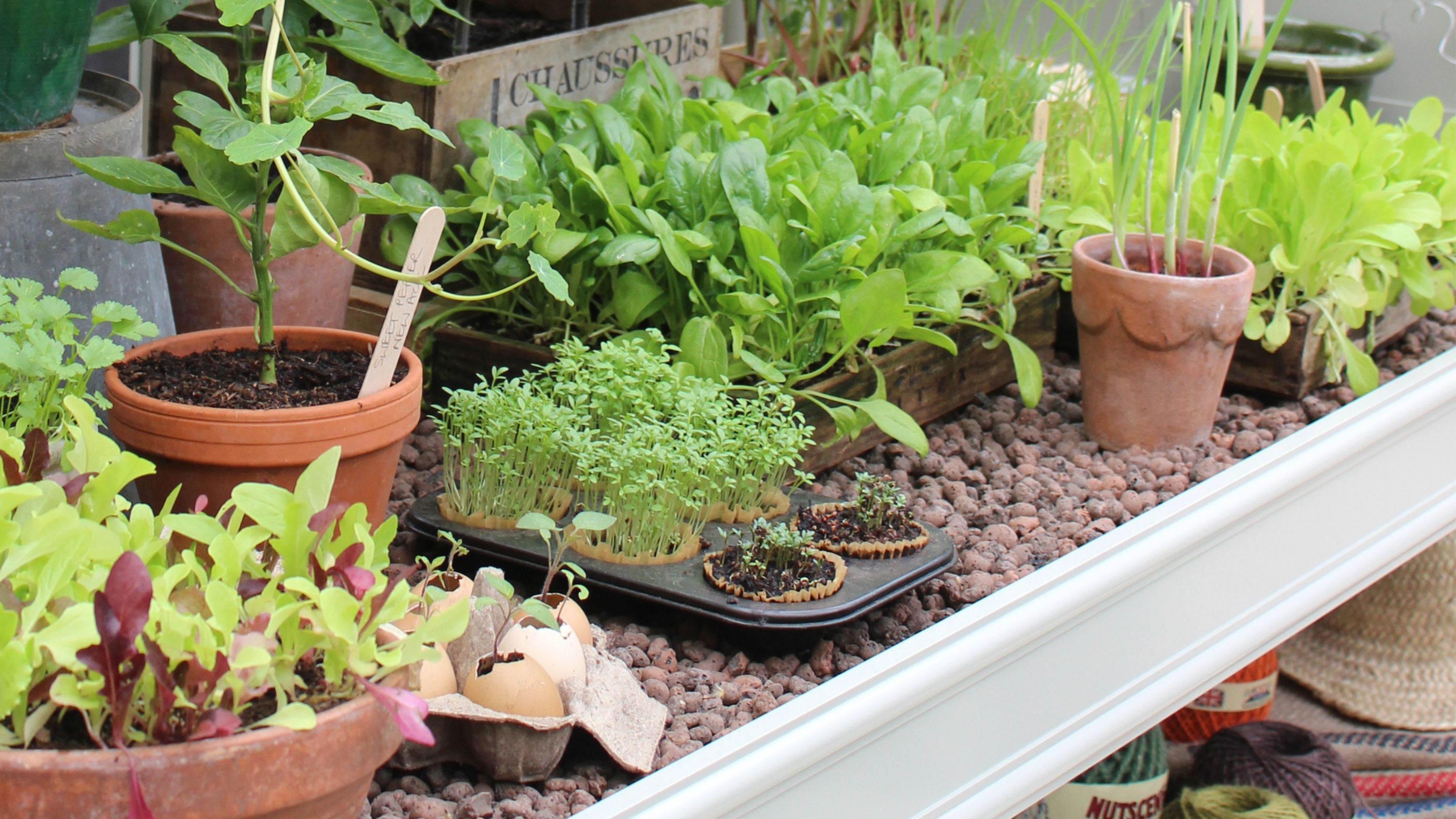

Sophie King
New year? New garden! And there's a long list of fruit and vegetables to grow in January, so you’ll be spoilt for choice this month.
Sure, it isn’t the peak season for growing your own fruit and vegetables, but adding sowing and planting to your list of jobs to do in the garden in January will reward you with tasty harvests later in the year.
'January is a brilliant time to plan your vegetable garden for the year ahead,' says gardening expert and writer Sarah Raven. 'It's also an ideal time to plant dormant fruit trees.'
Whether you’ll be sowing seeds under cover or learning how to plant bare root trees, we’ve rounded up a list of the best fruit and vegetables to grow in January.
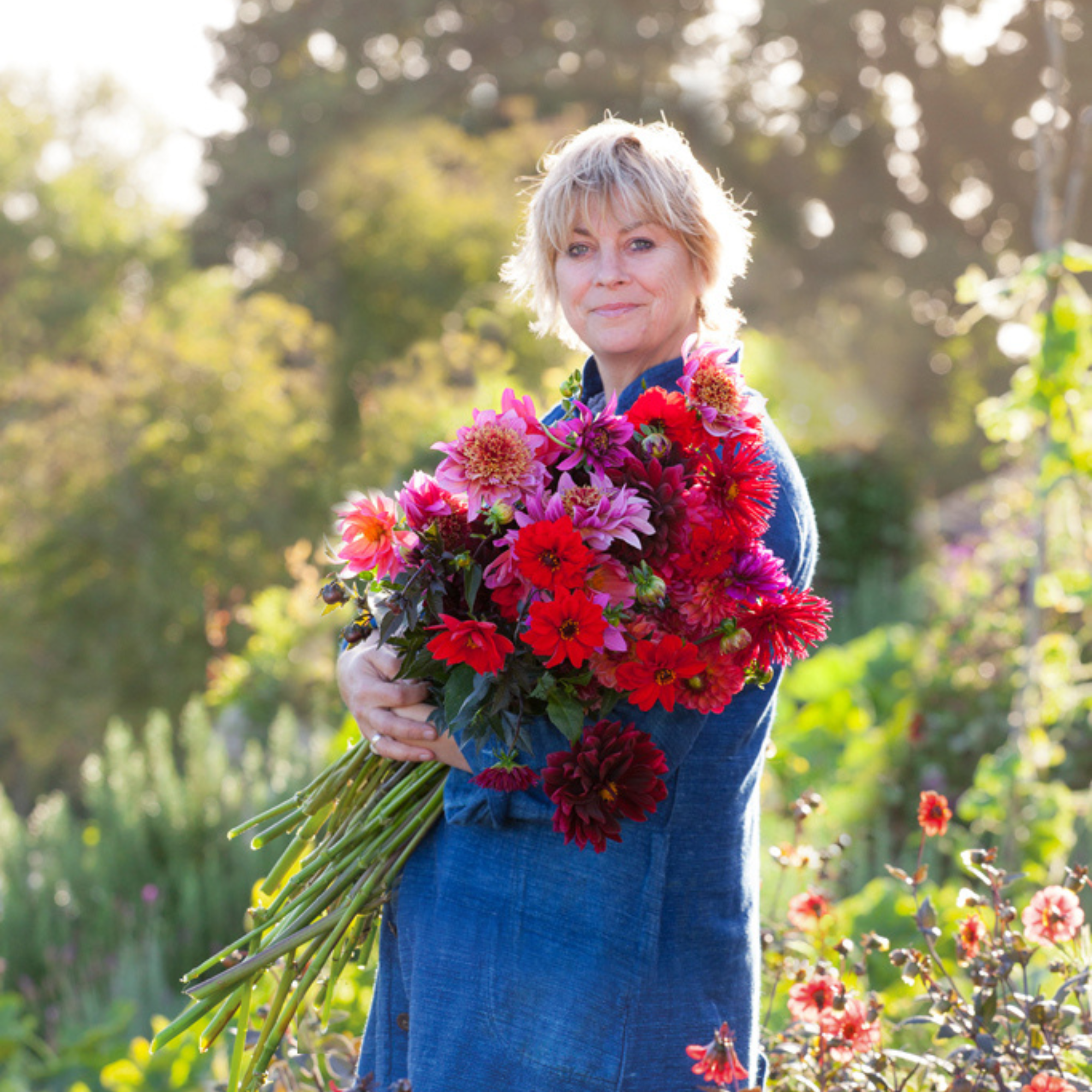
Sarah’s love of gardening extends to all areas, from growing cut flowers and delicious vegetables from seed, to designing stunning gardens packed full of variety, colour, and scent. Always with a focus on helping the environment and biodiversity, Sarah’s gardens are havens for birds, bees, and other pollinators.
Her popular gardening podcast ‘grow, cook, eat, arrange’ has achieved 4.3 million downloads. She’s published 14 books and runs sarahraven.com, which services over 600,000 customers.
You'll need to start growing most fruit and vegetables indoors in January before you plant them outside later in the year (that's where a heated propagator comes in handy), but a few can be sown or planted straight into the ground.
If you're on the hunt for the easiest vegetables to grow, or even the best fruit trees for a small garden, you'll be pleasantly surprised by the choice available this month.
Here are the best fruit and vegetables to grow in January.
1. Swiss chard
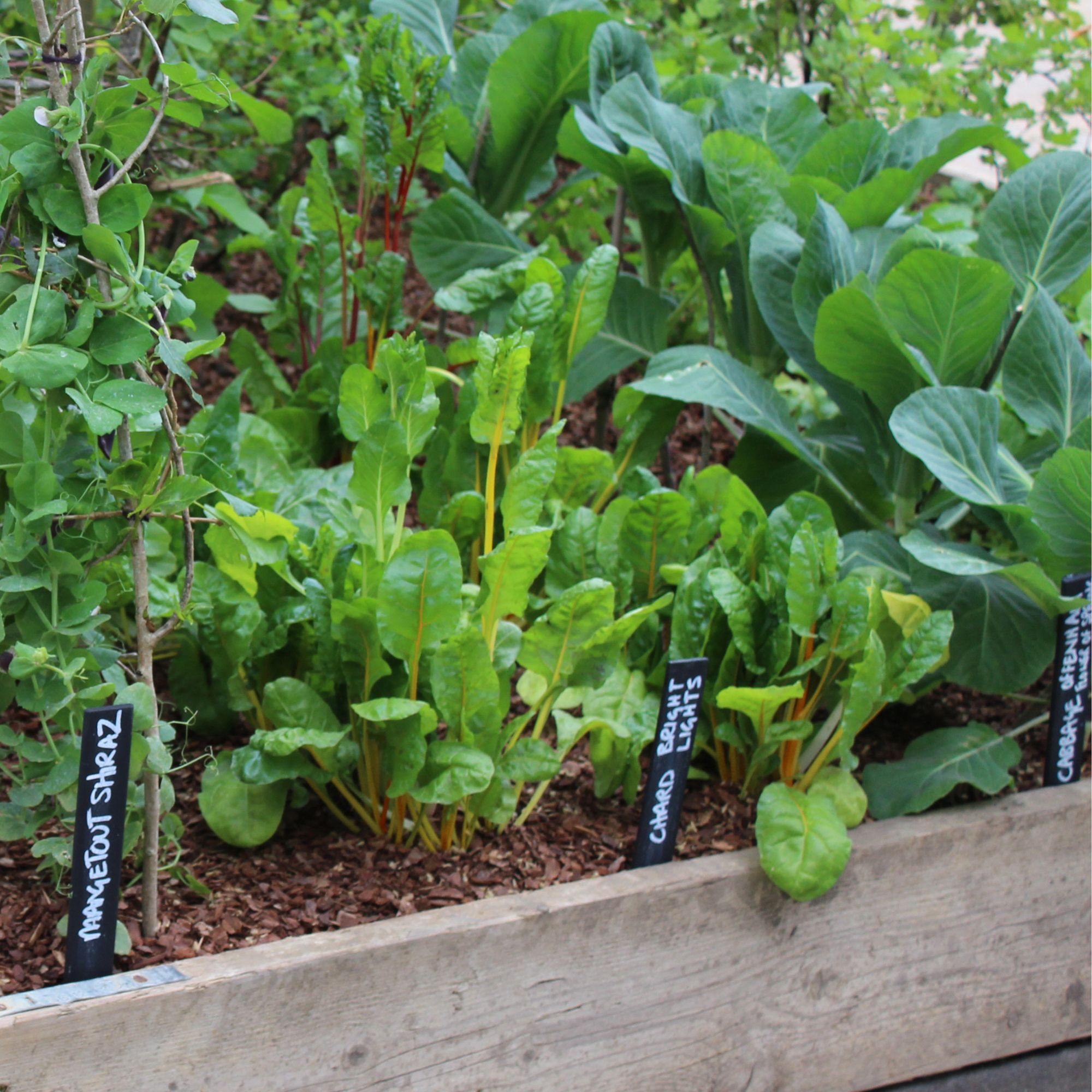
We're kicking off our list of the best fruit and vegetables to grow in January with Swiss chard. If you're wondering what to sow in January, you can start these seeds indoors this month.
It's one of Sarah Raven's favourites for an easy grow-your-own garden. 'Swiss chard is a particularly valuable addition to the garden — once it’s established, you’ll wonder how you ever managed without it,' she says.
If you're a fan of bringing your home-grown veg into the kitchen, Swiss chard is a brilliant choice — it can be used in salads and various other meals.
'Its versatility makes it perfect for dishes like risottos, stir-fries, gratins, and soups,' Sarah adds.
Where to buy Swiss chard seeds:
- Sarah Raven: Grow the rainbow with these Chard 'Bright Lights' seeds.
- J. Parker's: Sow Swiss Chard 'Ruby Red' seeds under cover this month for classic red stalks.
2. Spring salad leaves
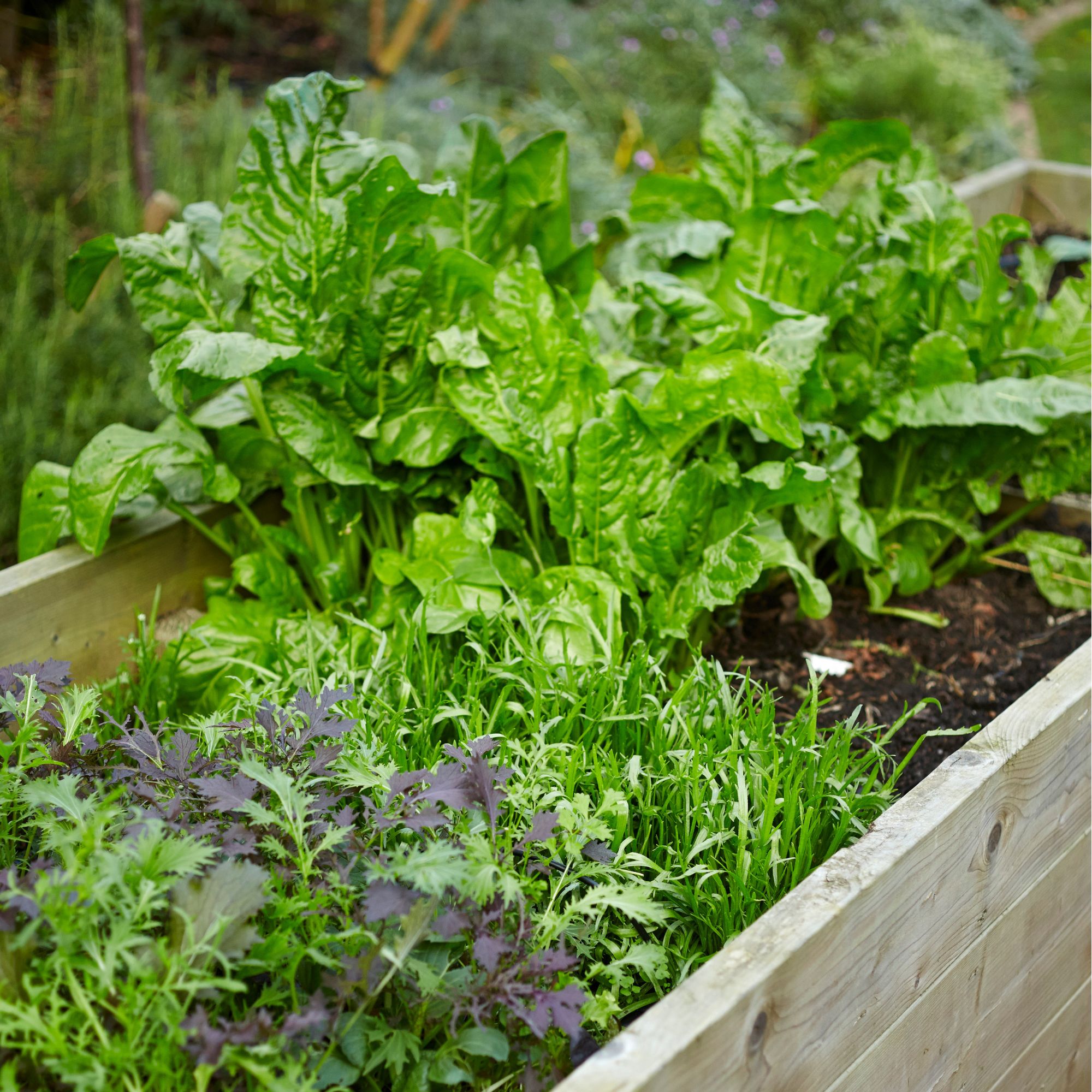
Spring salad leaves? For winter? Genuinely groundbreaking — but these tasty little morsels are among the best fruit and vegetables to grow in January.
Better yet? You can learn how to grow lettuce and other salad leaves on your kitchen windowsill for easy pickings.
'For a fresh touch, grow cut-and-come-again salad leaves on your windowsill,' says David Glass, head gardener at Bowood House & Gardens. 'It’s an easy way to enjoy homegrown greens throughout the year.'
For the best results, grow salad leaves on a sunny windowsill and keep the soil consistently moist, but not soggy.
Where to buy spring salad seeds:
- Thompson & Morgan: A bumper selection of salad seeds.
- Crocus: More than enough varieties of salad leaf seeds to shake a lettuce leaf at.
3. Onions
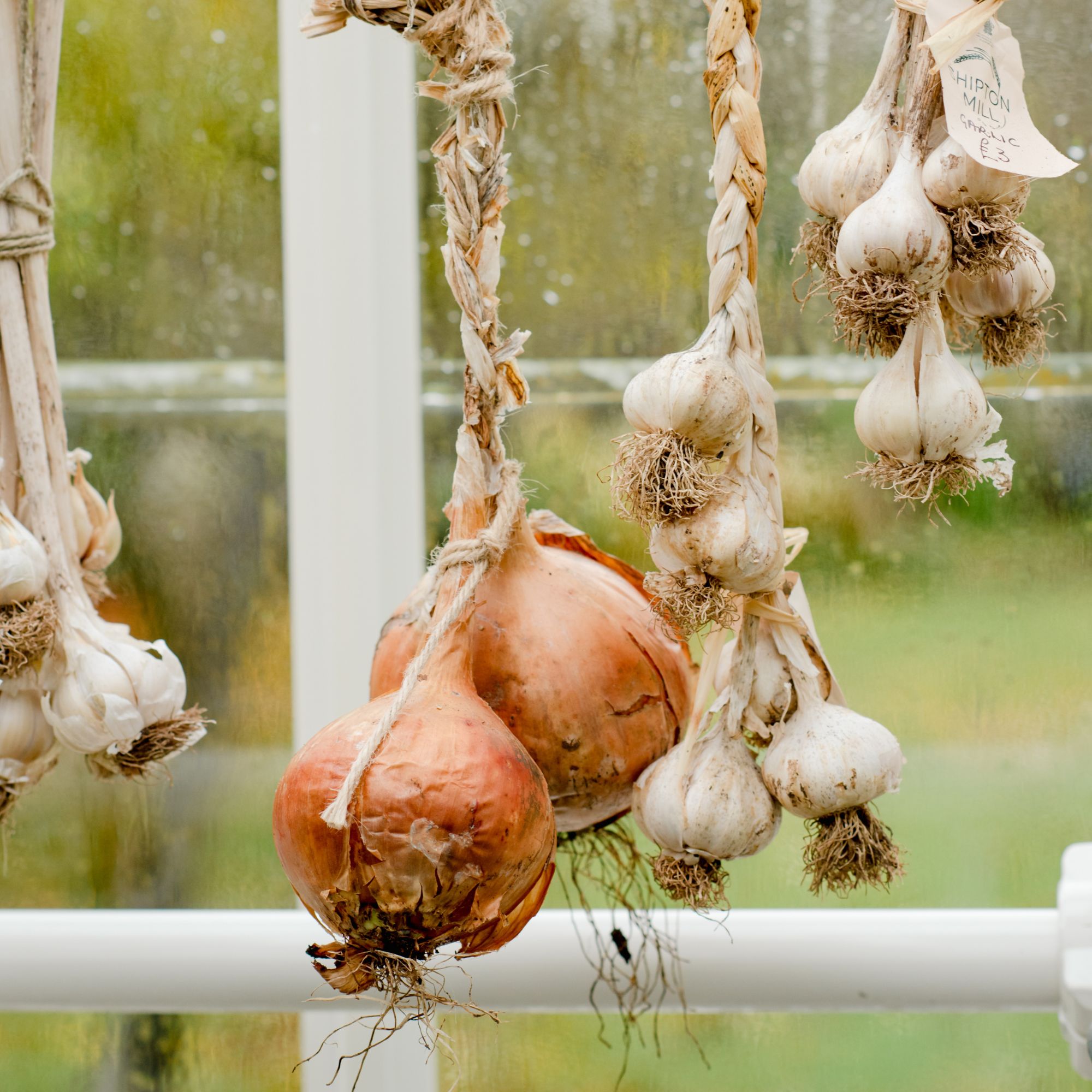
Keen to learn how to grow onions? You'll be pleased to know that they're considered to be among the best fruit and vegetables to grow in January.
'Later in the month, plant onion sets directly into the ground, provided the soil is workable,' says David. Alternatively, you can sow onion seeds indoors.
Onions require a long growing season, so starting them now is a great way to get a head start on the gardening year.
Where to buy onion sets and seeds:
- Thompson & Morgan: A wide variety of onion seeds.
- Crocus: A selection of onion sets and seeds to choose from.
4. Garlic
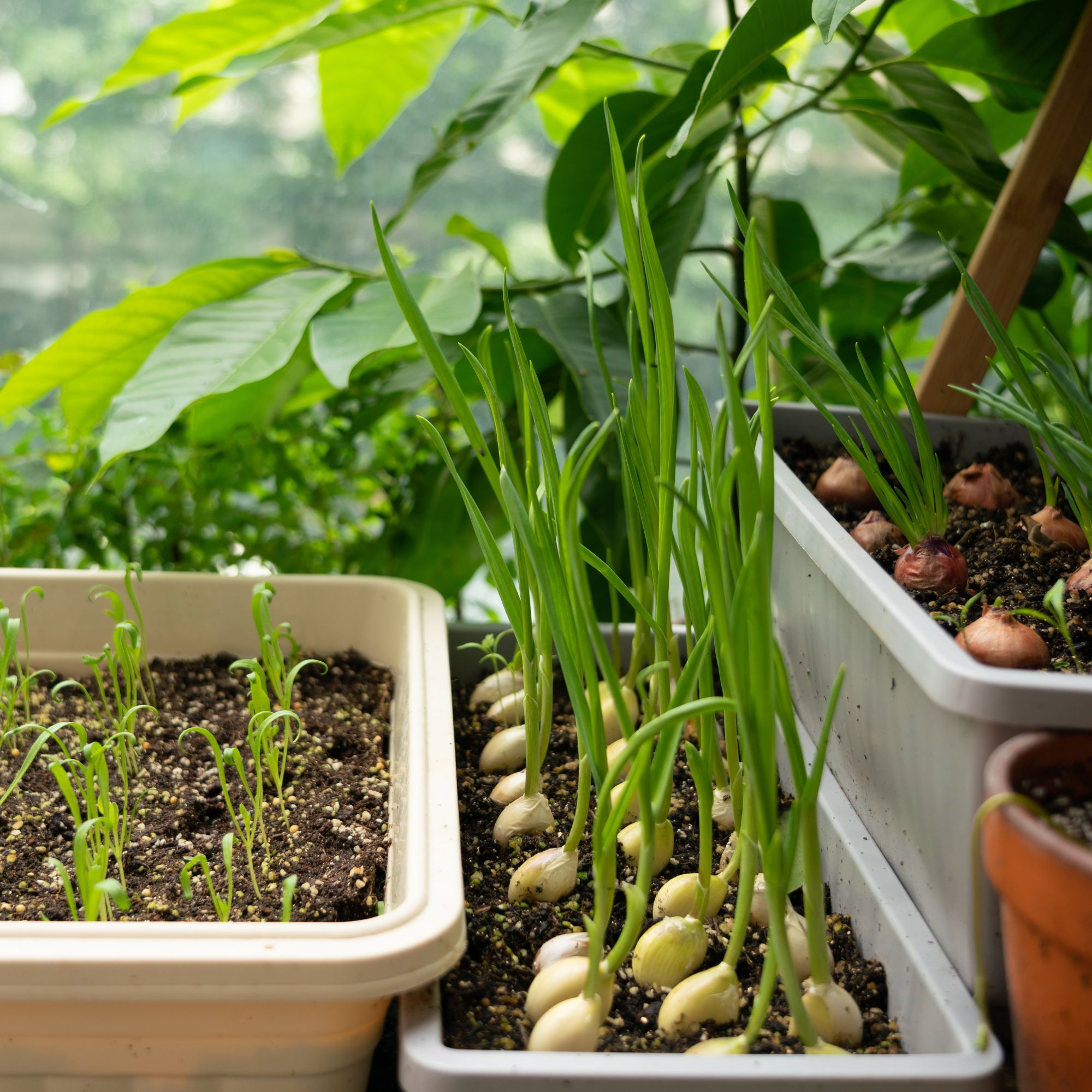
Now is the perfect time of year to learn how to grow garlic, another bulb vegetable, because they thrive in cooler soil. In fact, a cold snap is exactly what garlic needs to form its cloves.
As long as the ground isn't frozen, you can add garlic to your list of fruit and vegetables to grow in January.
'January is great for planting garlic cloves in well-drained soil,' says Andrew O'Donoghue, co-founder of Gardens Revived.
Where to buy garlic bulbs:
- Sutton: A selection of onion and shallot sets.
- Dobies: More onion and shallot sets to choose from.
5. Broad beans
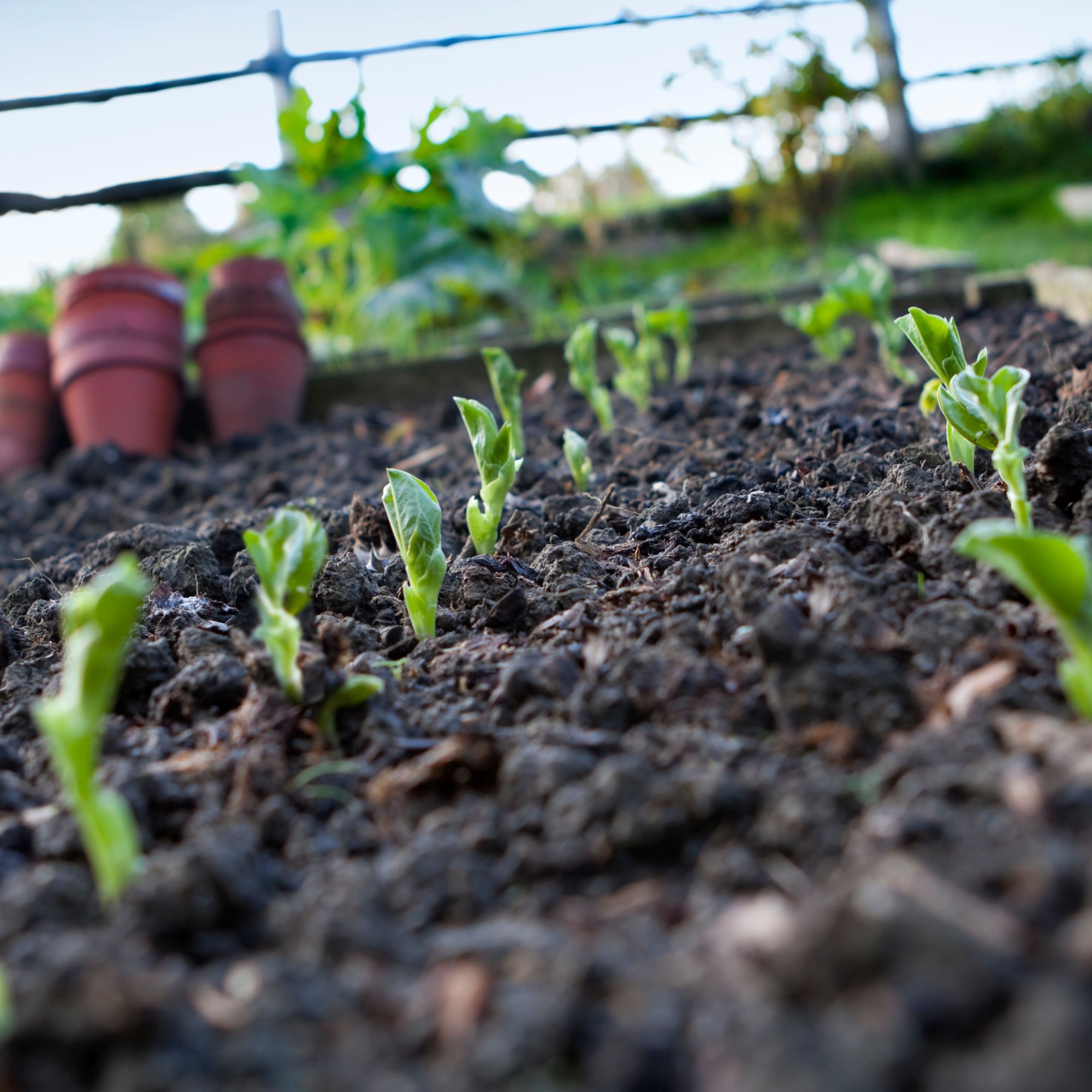
When it comes to sussing out the best fruit and vegetables to grow in January, you can't go wrong with broad beans.
'Broad beans are very hardy, so they can tolerate this month's colder snaps,' promises Andrew.

RHS-trained gardener Andrew O'Donoghue set up Gardens Revived with his brother, Christopher, in 2018 to create a thriving family business. Together, they have worked on residential gardens, listed buildings and gardens, flower shows and large estates with some exceeding 70 acres – many with historical significance.
If it's especially cold outside, you could cover your sowings with a cloche or grow tunnel from Amazon. This is also a good way of warming the soil prior to sowing.
Or, you could start your seeds indoors. 'Look to plant broad beans in pots in the greenhouse or on a sunny windowsill,' advises David from Bowood House & Gardens.
Where to buy broad bean seeds:
- Suttons: Sow the ever-popular Broad Bean 'Aquadulce Claudia' this month.
- Thompson & Morgan: Plenty more broad bean seeds to browse through.
6. Chillies
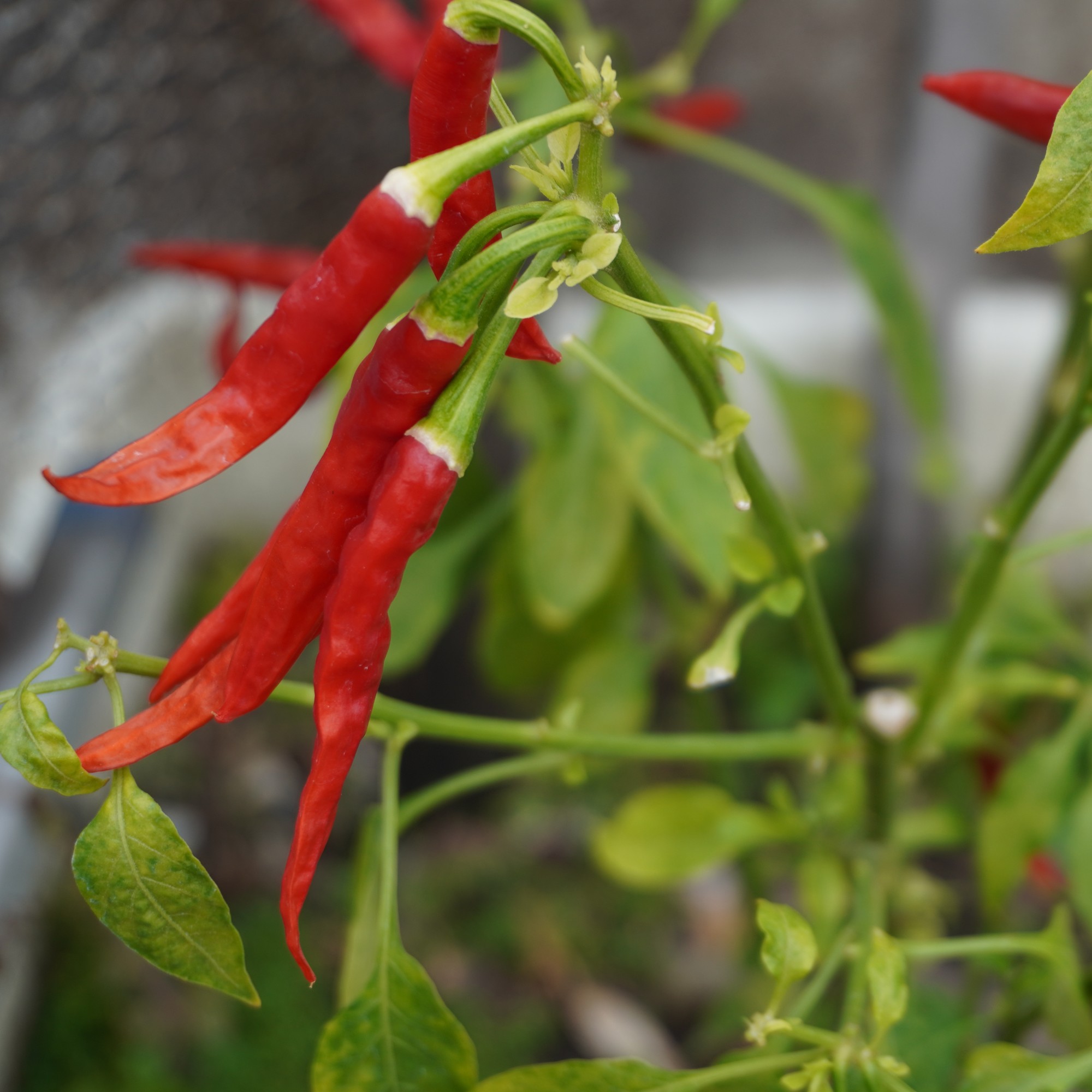
Another surprising entry to the list of best fruit and vegetables to grow in January is chillies. It's incredibly fun and rewarding to learn how to grow chillies in pots, and you can sow them indoors this month.
'Sowing chillies as the first seeds of the year is a smart choice for gardeners,' says Morris Hankinson, director of Hopes Grove Nurseries. 'All you need to do to get started is sow your chilli seeds in a small pot of seed-starting compost and barely cover them.'

Morris Hankinson is the founder and managing director of Hopes Grove Nurseries Ltd, the UK’s only specialist grower-retailer of hedging plants, which he established after graduating with a Commercial Horticulture Degree from Writtle College, Essex in 1992.
There are endless opportunities to grow your chillies on a windowsill, terrace, patio, window box, sunny conservatory, or greenhouse.
Where to buy chilli seeds:
- Sarah Raven: Try Chilli 'Hot Cayenne' for plenty of spicy chillies.
- Crocus: Lots of different chilli seeds, ranging from mild to sizzling.
7. Herbs
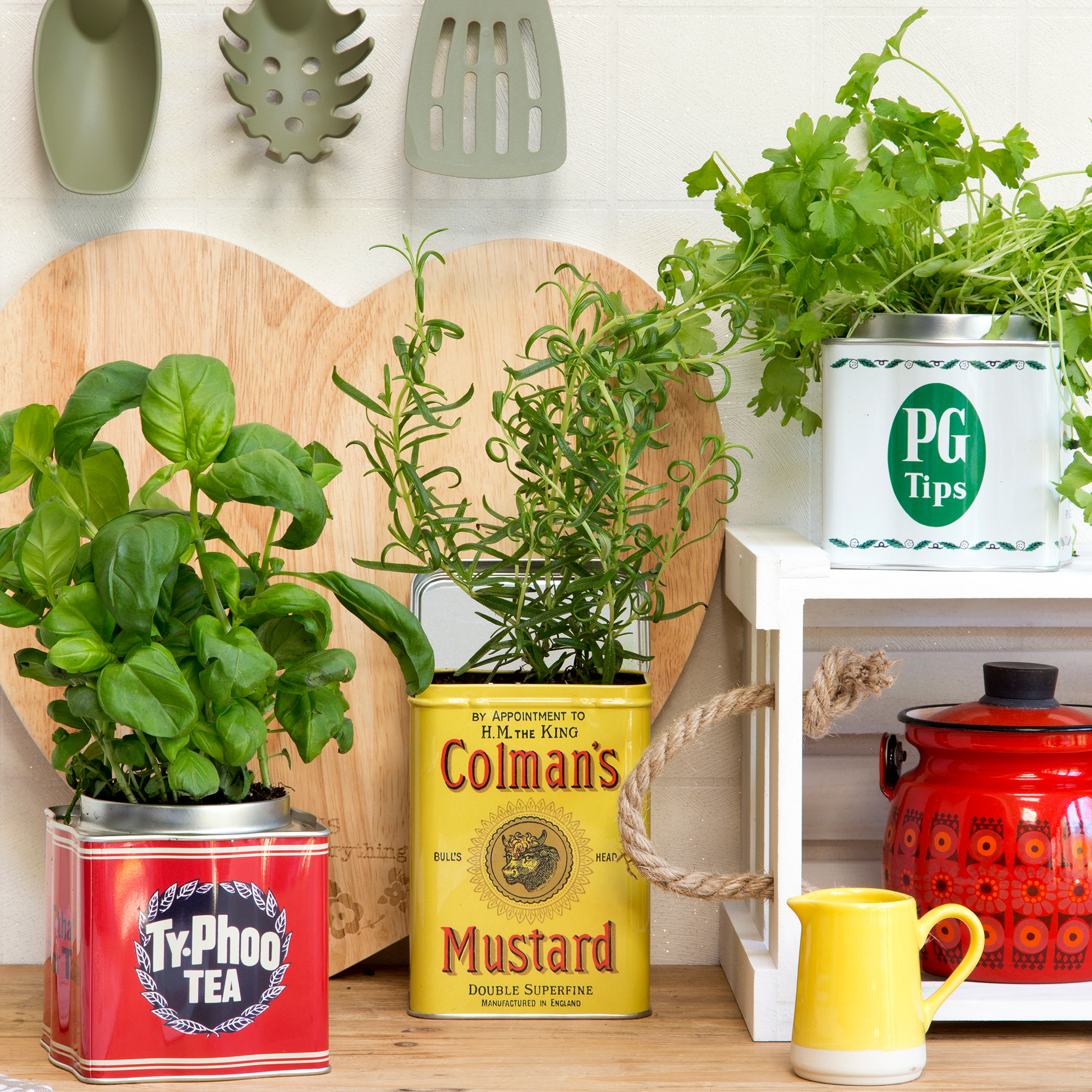
Herbs might be the forgotten saviours of most meals, but they truly are a fantastic way to add flavour and colour to any dish. And, thankfully, they're very easy to grow — even in the colder months — so now is the time to start prepping those herb garden ideas.
'Hardy herbs such as parsley, chervil and coriander can also be sown under cover now,' says Sarah Raven. 'Washing parsley seeds in warm water overnight before planting removes the germination inhibitor and speeds up sprouting.'
Where to buy herb seeds:
- Sarah Raven: Lots of different herbs are available, including these Parsley 'Moss Curled' seeds and Coriander 'Leisure' seeds.
- D.T. Brown: Stock up on chervil seeds for January sowing.
8. Peas
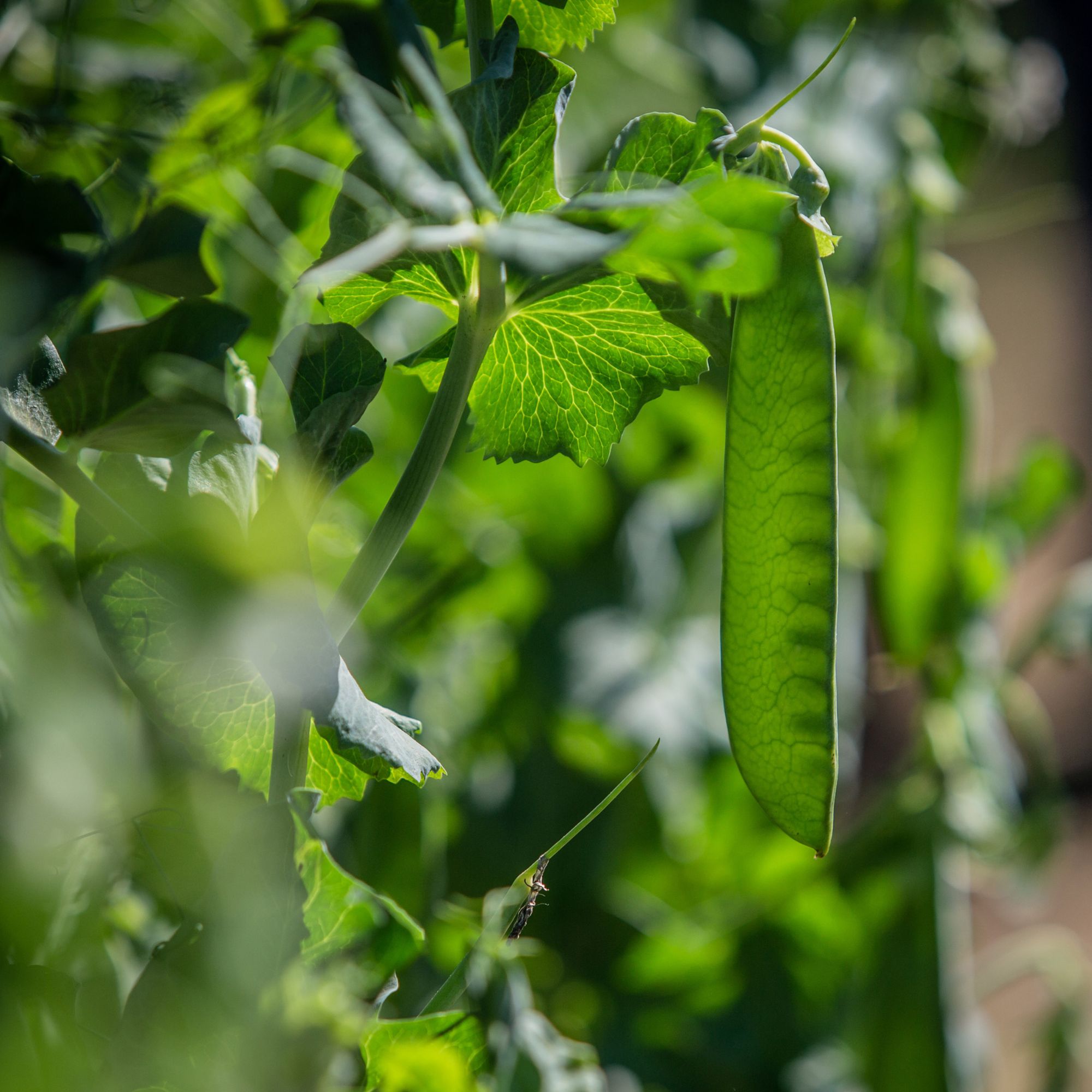
Should you give peas a chance when the weather is chilly? Absolutely you should — both Morris and Andrew count them among the best fruit and vegetables to grow in January.
'Peas can handle a light frost, but for an early start, try sowing them in a greenhouse or under cloches,' says Andrew.
Morris agrees, adding, 'Much like broad beans, starting pea seeds indoors in January allows you to transplant seedlings outside when the weather warms up in the spring.'
Where to buy pea seeds:
- D.T. Brown: Pea 'Meteor' is a great choice for early January sowing.
- Dobies: Pea 'Early Onward' is another tasty early variety.
9. Bare-root fruit trees
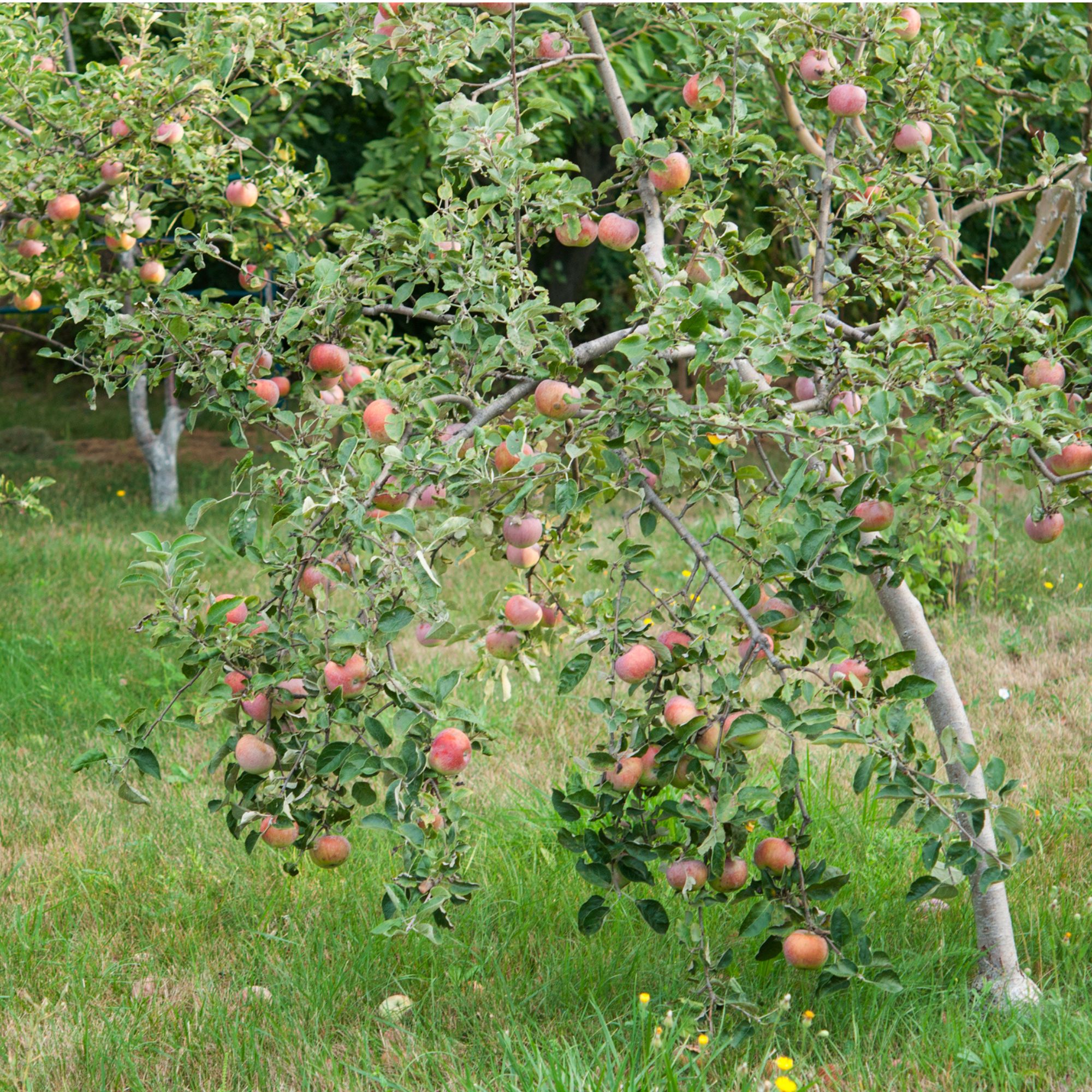
As long as the soil isn’t frozen, you can still plant bare root trees in January — which is good news for anyone who dreams about picking their own fruit in the hazy summer sunshine.
'Planting a fruit tree is easy to do, so if you’ve not grown one before, then we’d encourage anyone to have a go — they bring so many benefits,' says Alice Whitehead, communications officer at sustainable gardening charity Garden Organic via The Wildlife Trusts.
'They don’t need to be huge — dwarf varieties are suitable for large pots, or you can even train apple trees to be stepped over on an allotment!'
Where to buy bare root fruit trees:
- Thompson & Morgan: A wide variety of bare root fruit trees and fruit bushes, from blackcurrants to pears.
- Crocus: A good selection of bare root fruit, including gooseberries and peaches.
FAQs
What fruit is best to plant in January?
Most fruit trees and bushes can be planted in January, as long as the ground isn't frozen. That means you can go for the easiest fruit trees to grow, like apples, pears and plums, or invest in a raspberry or blueberry plant for tasty pickings throughout summer and autumn.
Gooseberries and currant bushes can also be planted during this dormant season, but you should hold off planting strawberries until spring.
What can I plant in January for spring?
If you're wondering what vegetables to plant in January for spring harvests, there's plenty to choose from.
Peas sown in January should be ready to harvest around May, but if you started them indoors, you'll need to harden them off and plant them outside when the weather is warm enough — usually around March and April.
Salad leaves and herbs sown in January will also be ready to harvest in spring, and even in the weeks before that, if you're growing them indoors or under a cloche.
With so many fruit and vegetables to grow in January, you have more than enough reasons to make 'grow my own food' one of your New Year's resolutions.
Get the Ideal Home Newsletter
Sign up to our newsletter for style and decor inspiration, house makeovers, project advice and more.

Kayleigh Dray became Ideal Home’s Acting Content Editor in the spring of 2023, and is very excited to get to work. She joins the team after a decade-long career working as a journalist and editor across a number of leading lifestyle brands, both in-house and as a freelancer.
- Sophie KingGardens Editor
-
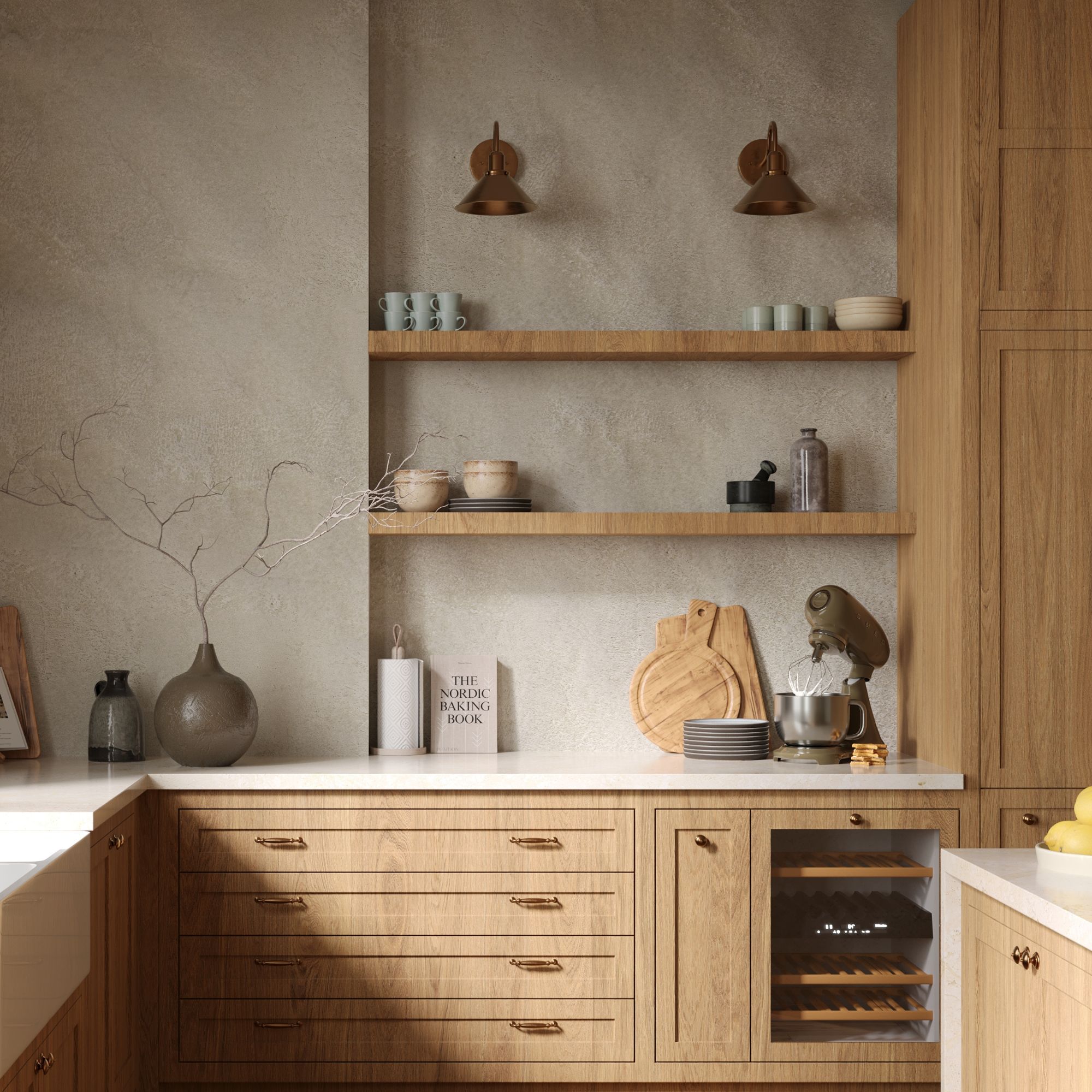 Wood drenching is the calming new twist on the colour drenching trend – here’s how to make the look work in your home
Wood drenching is the calming new twist on the colour drenching trend – here’s how to make the look work in your homeIt’s easier than ever to embrace natural materials
By Maddie Balcombe
-
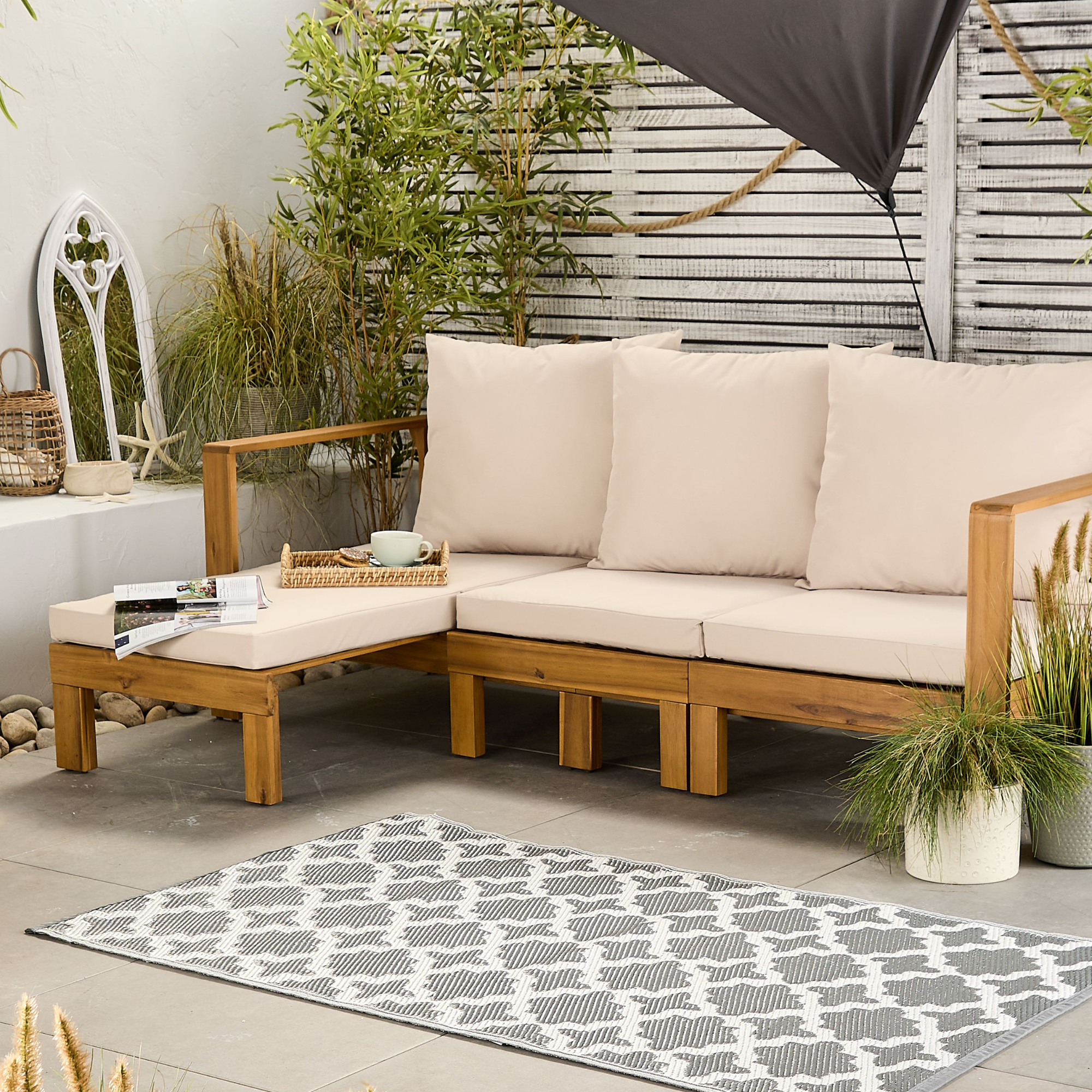 Aldi is launching a £200 day bed with four different features - its sleek design is suited to the whole family
Aldi is launching a £200 day bed with four different features - its sleek design is suited to the whole familyYou don't want to miss out on this Specialbuy
By Kezia Reynolds
-
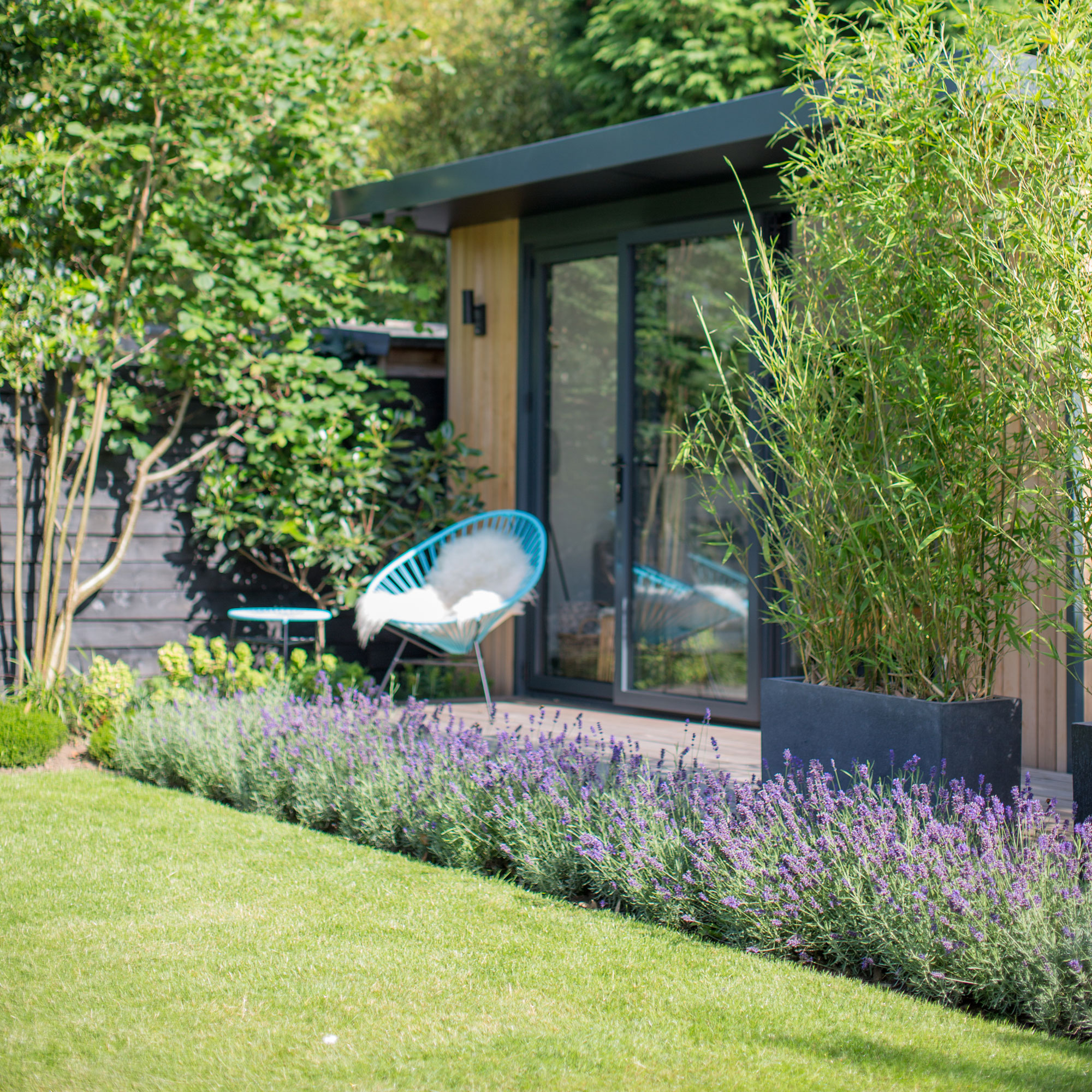 How to set up a drip watering system that saves water and a lot of effort
How to set up a drip watering system that saves water and a lot of effortKeep your plants hydrated (and your water bill down) with this clever garden watering solution
By Natalie Osborn
-
 Aldi is launching a £200 day bed with four different features - its sleek design is suited to the whole family
Aldi is launching a £200 day bed with four different features - its sleek design is suited to the whole familyYou don't want to miss out on this Specialbuy
By Kezia Reynolds
-
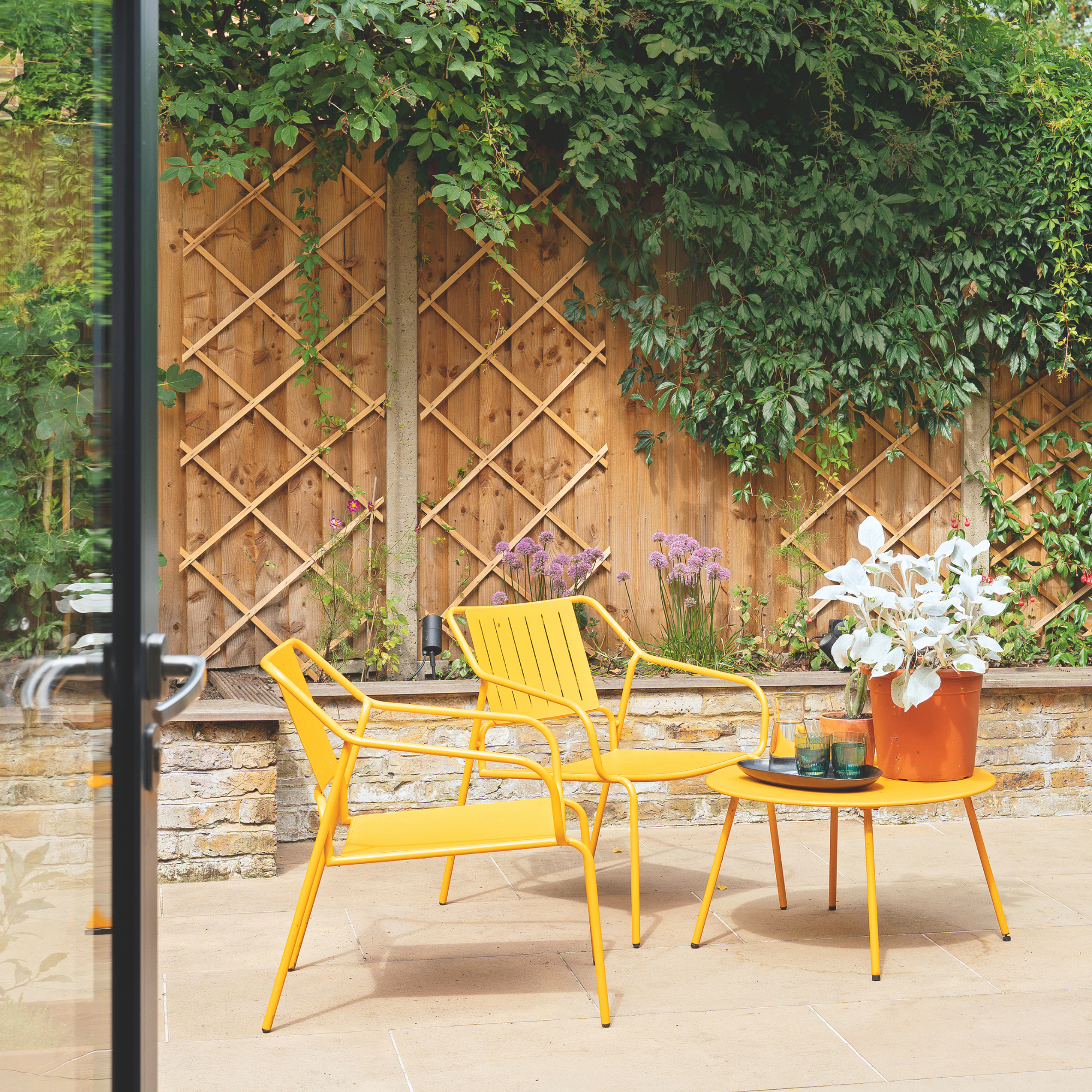 I’m seeing pastel garden furniture at all my favourite brands this spring, but QVC’s sorbet collection impressed me the most
I’m seeing pastel garden furniture at all my favourite brands this spring, but QVC’s sorbet collection impressed me the mostFresh pastel shades are a great way to liven up your outdoor space
By Kezia Reynolds
-
 I spent the afternoon looking through Wayfair's garden sale – these are the 6 pieces I'm buying immediately for summer
I spent the afternoon looking through Wayfair's garden sale – these are the 6 pieces I'm buying immediately for summerThese are my must-have garden buys from the sale
By Holly Reaney
-
 I’ve found the perfect alternative to John Lewis’ sold-out striped garden chair – and you won’t believe where it's from
I’ve found the perfect alternative to John Lewis’ sold-out striped garden chair – and you won’t believe where it's fromJohn Lewis' Sling Garden Chair is one of the most stylish pieces of garden furniture I'd seen – until I tracked down this QVC lounge chair...
By Kezia Reynolds
-
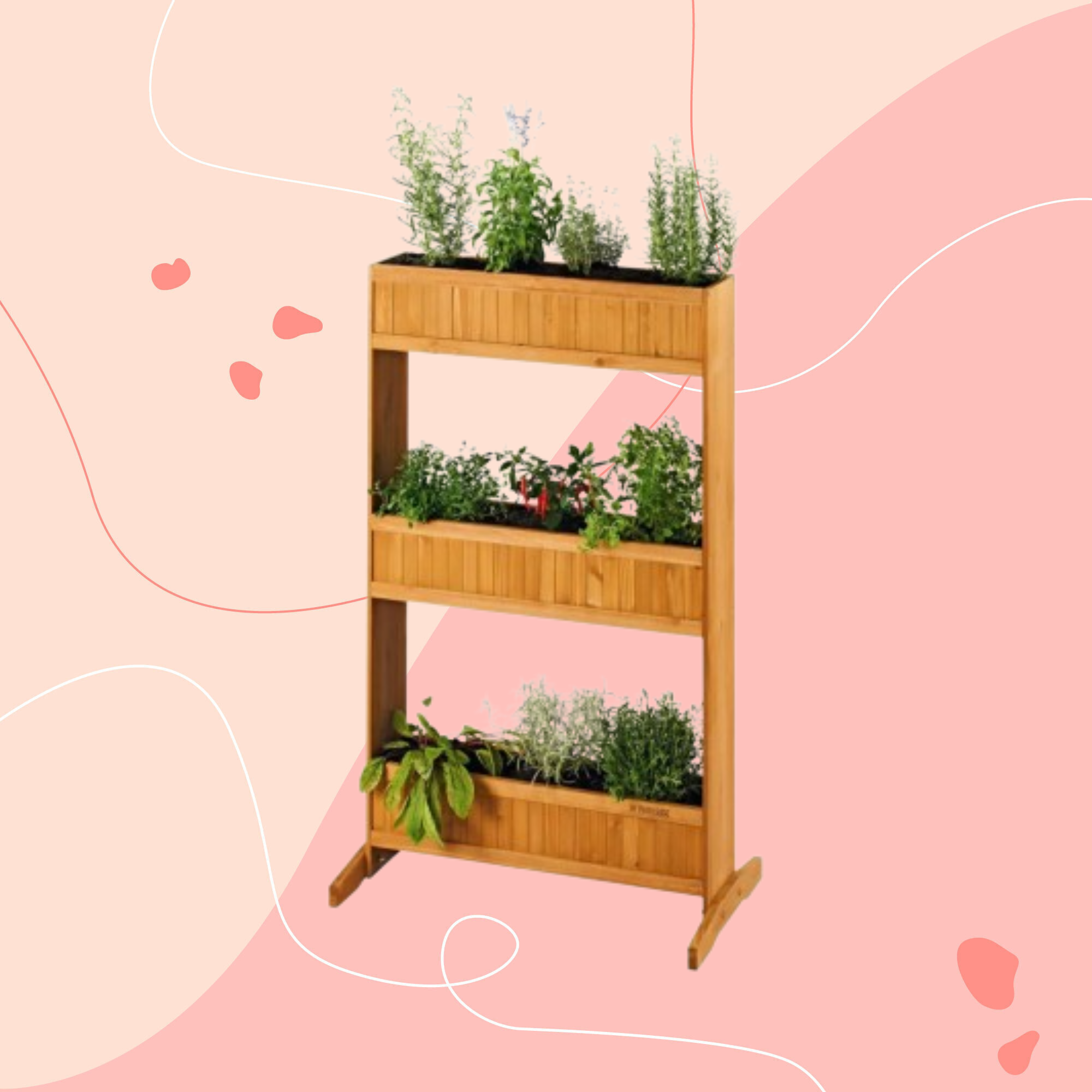 Lidl is selling a smart tiered planter that will unlock extra planting space in a tiny garden or balcony
Lidl is selling a smart tiered planter that will unlock extra planting space in a tiny garden or balconyWhy I've been eyeing this planter up for my tiny garden
By Kezia Reynolds
-
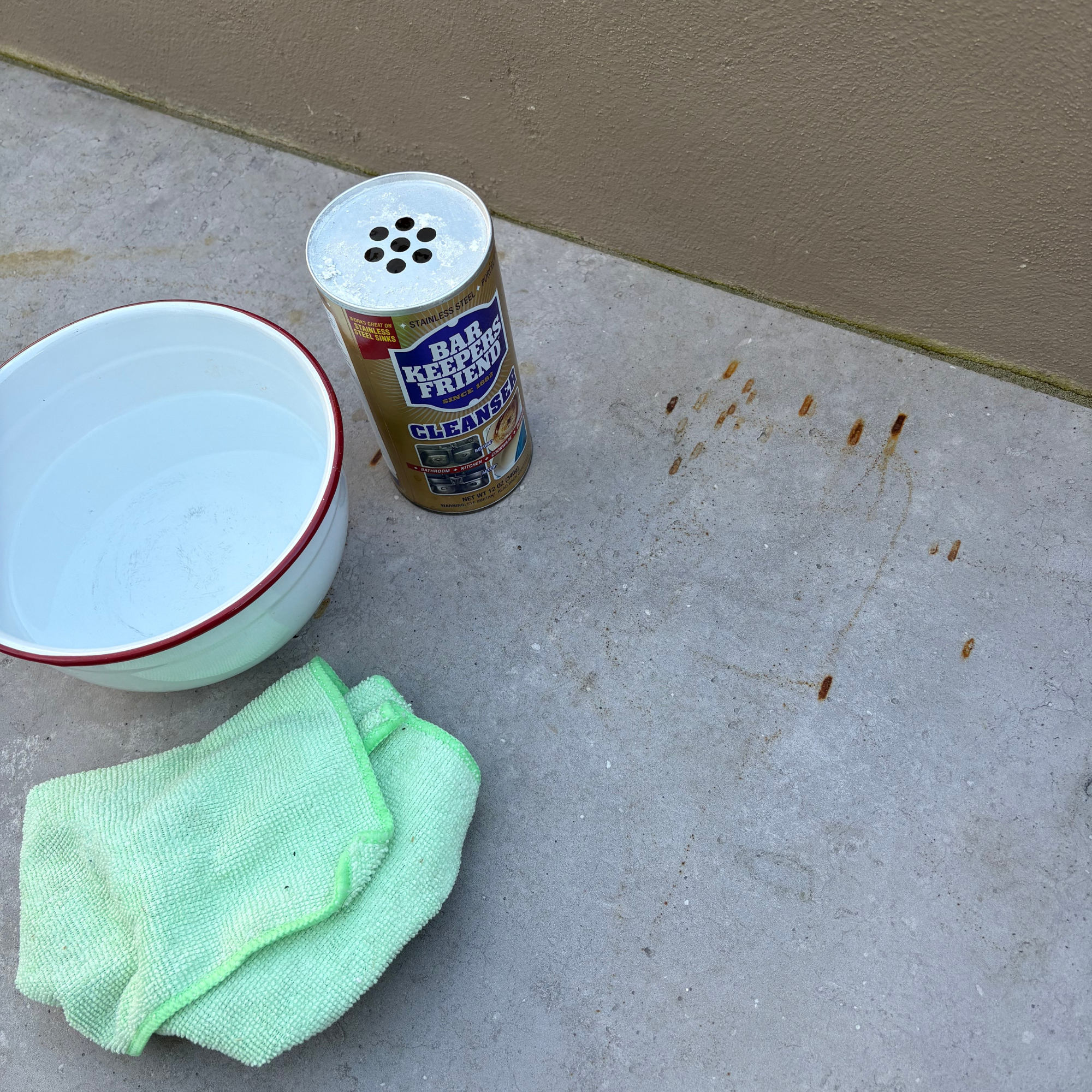 I’ve found the best solution for cleaning stains from a patio - and it’s only £8 on Amazon
I’ve found the best solution for cleaning stains from a patio - and it’s only £8 on AmazonThe stains practically vanish!
By Kezia Reynolds
-
 Lidl’s £15 sun sail is everything you need to create a shady oasis in your garden – and it’s on sale right now
Lidl’s £15 sun sail is everything you need to create a shady oasis in your garden – and it’s on sale right nowWith two stylish colours available, the sun sail will make a chic yet practical addition to any of your garden.
By Kezia Reynolds
-
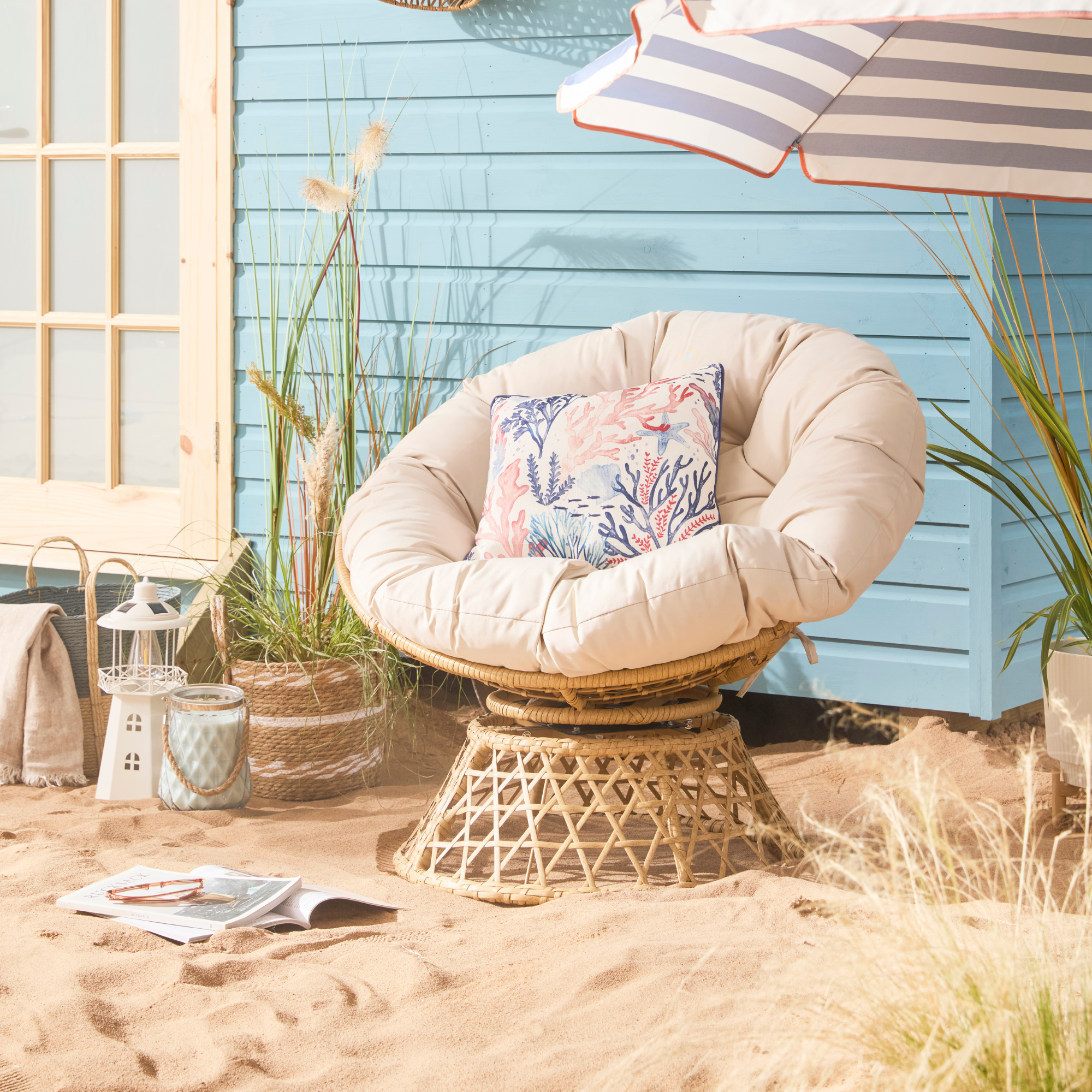 B&M has nailed 2025's breakout garden furniture trend - it's one of the most affordable and stylish I've seen
B&M has nailed 2025's breakout garden furniture trend - it's one of the most affordable and stylish I've seenGet the luxe look for less
By Kezia Reynolds